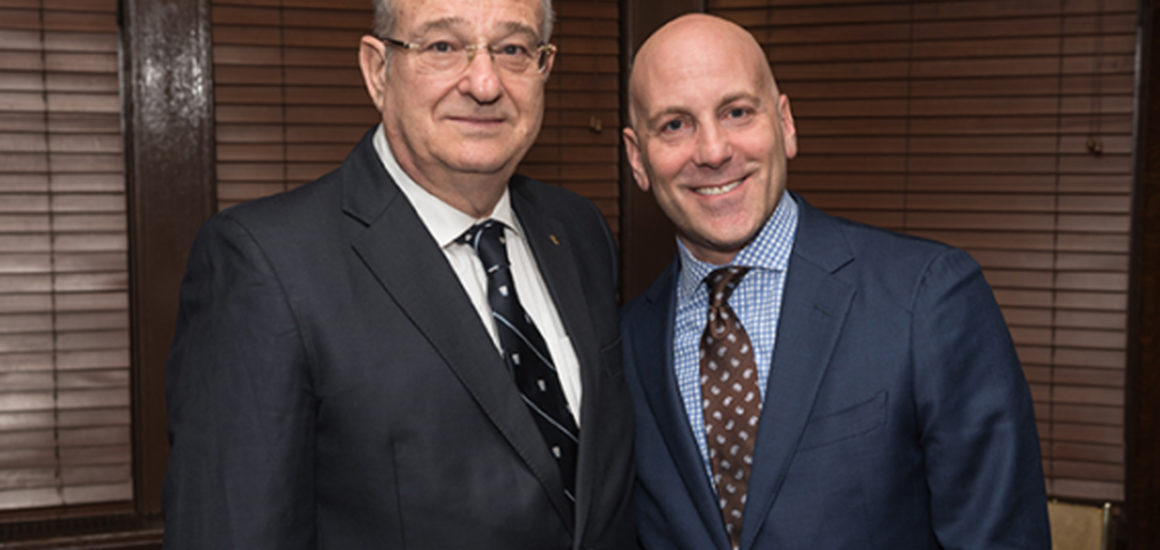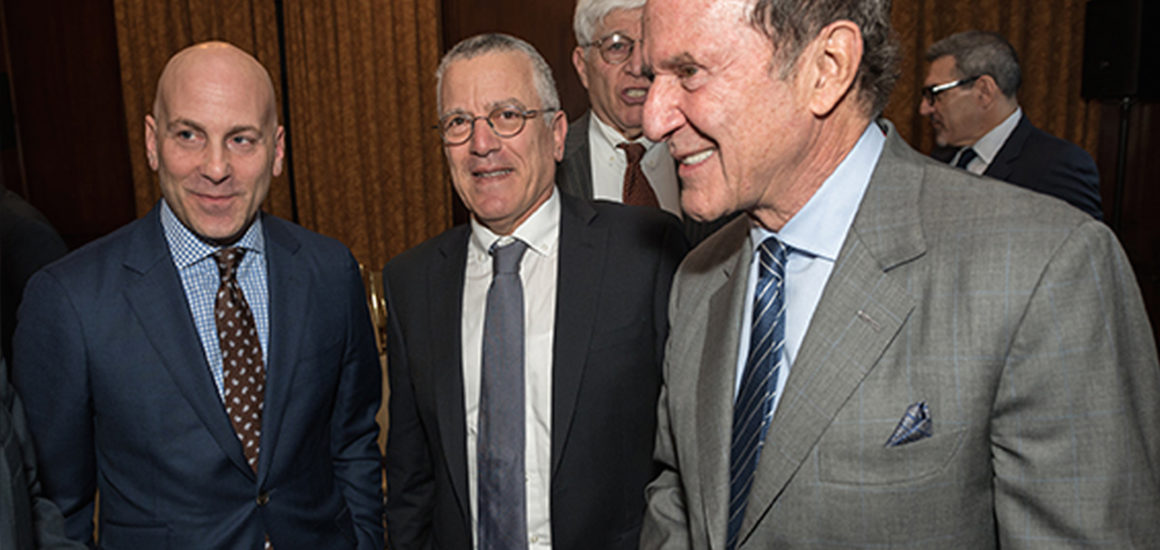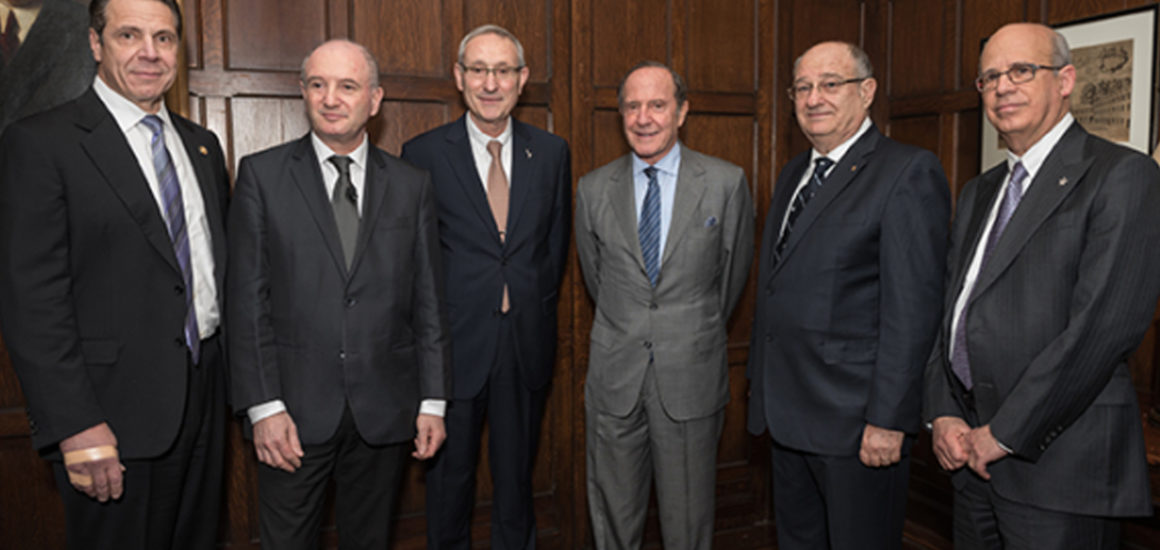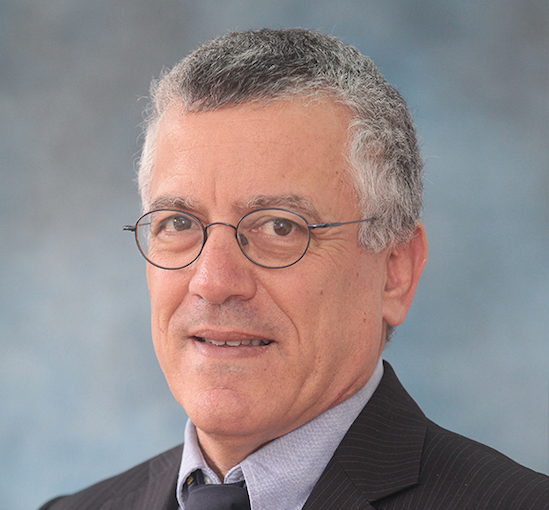Zuckerman Scholars Program Promises to Transform Israel’s Science Landscape
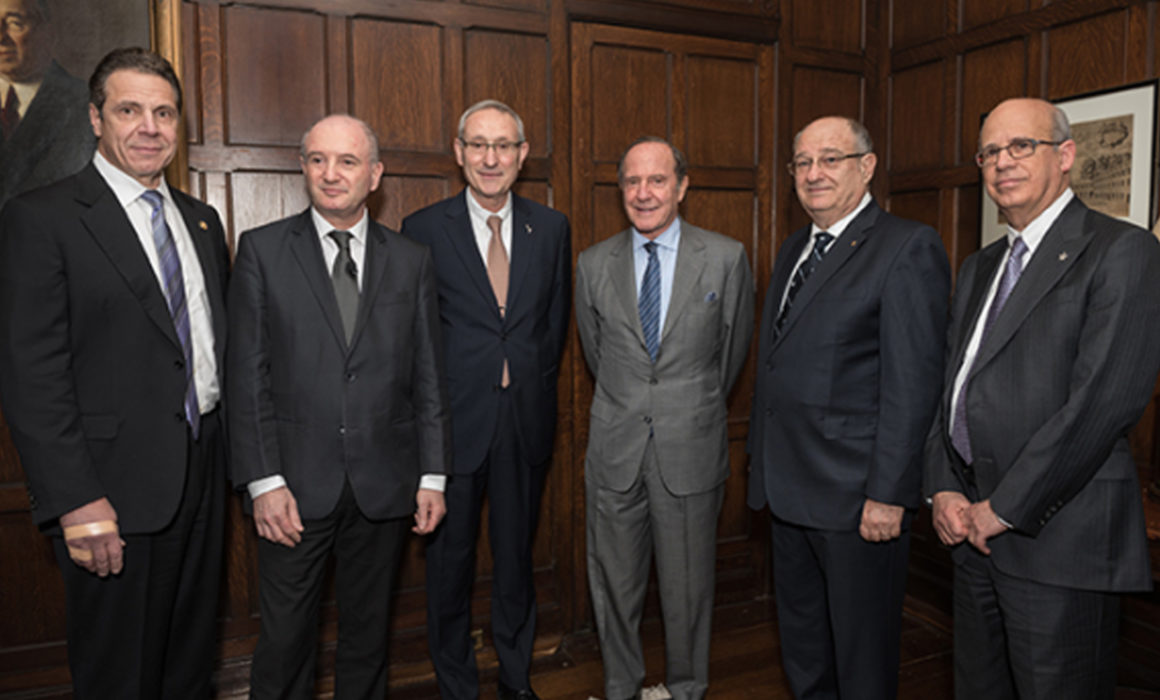
Fulbright. Rhodes. Marshall. These programs represent the pinnacle of achievement for young scholars, and have long served as a launching pad for many of the world’s greatest leaders and brightest thinkers. Late last month, I was proud to be present at a major ceremony in New York City as a new name was added to this prestigious international group — the Zuckerman Scholars Program — which will put Israel on the map in unprecedented ways for the most talented, up-and-coming American researchers.
The program is the brainchild of Mortimer Zuckerman — a renowned business leader and visionary philanthropist — who announced a commitment of more than $100 million to support scholarships for the highest-achieving American postdoctoral researchers and graduate students in Science, Technology, Engineering and Math (STEM) subjects. They will conduct research at four Israeli institutions: Technion, Hebrew University of Jerusalem, Tel Aviv University and Weizmann Institute of Science. The program will simultaneously bolster Israeli institutions as world-class centers for research, providing significant funding to recruit Israelis doing research in the U.S. back to the faculties of the four universities, and to develop top-tier labs, projects and programs.
“Who knows what might emerge next from the unpredictable meeting of minds between Tel Aviv and New York, between Haifa and Harvard, between Yiddish and Yale?” asked Mr. Zuckerman at the ceremony unveiling the program — which was attended by a range of dignitaries, among them New York Governor Andrew Cuomo, Technion President Peretz Lavie and other Israeli university presidents, Nobel Prize laureates, and a range of leaders from business, technology, politics, academia and the arts.
Sitting in the audience, I felt a surge of pride knowing the integral role that the Technion will play in bringing together these great minds to actualize the bold vision of this program in the coming decades. And I couldn’t help but imagine the range of discoveries — and millions of lives that will be changed — as a result.
Limited by funding, Israeli universities have long struggled to compete for the top postdocs from Western countries, particularly the U.S. This major influx of resources will level the playing field. The Zuckerman Scholars Program will enable the Technion to attract more postdocs like Dr. Beth Schoen, a native of Florida, who is now working with a joint team of Israeli and American cancer researchers. Last year, her team discovered a new way to use silicon nanomaterials and stem cells to deliver chemotherapy drugs directly to cancerous tumors, avoiding harm to the surrounding healthy tissues.
The program will also help the Technion and other Israeli institutions attract the best and brightest Israeli faculty, who are often lost to universities abroad. It will sponsor cutting-edge labs and funds for research to support the work of professors like Moran Bercovici in the Technion’s Faculty of Mechanical Engineering, who made the decision to come back to Israel after completing his doctorate at Stanford in large part because of the Technion’s state-of-the-art facilities. He is now developing next generation medical tools that could provide instant disease diagnoses, and revolutionize the way malaria and tuberculosis are detected and treated in developing countries.
The Technion has long been at the center of Israel’s emergence as a global research powerhouse. It is a focal point for the country’s most significant international research collaborations and has been the first to export Israel’s uniquely effective formula for higher education, opening satellite campuses at the Jacobs Technion-Cornell Institute at Cornell Tech in New York City ,and at the Guangdong Technion Israel Institute of Technology in Shantou, China. Last month’s announcement will accelerate this progress.
The relationships forged between American postdocs and their Israeli colleagues will continue throughout their careers, fostering a new network of collaboration, enriching the scientific communities of both countries, and strengthening the U.S.-Israel alliance.
We do not yet know exactly what groundbreaking research and life-changing solutions will result from this exciting new partnership between the brightest minds in our two countries. How many innovative treatments for cancer will be developed? What advances in clean-tech will help to address global warming? What new technologies will be created to spawn new companies and new industries?
Only time will tell. Yet, one thing is clear to me: supporting Israel’s rapid rise as an international hub for science and technology is an investment that will yield benefits that extend far beyond the Jewish state to all corners of the world.

